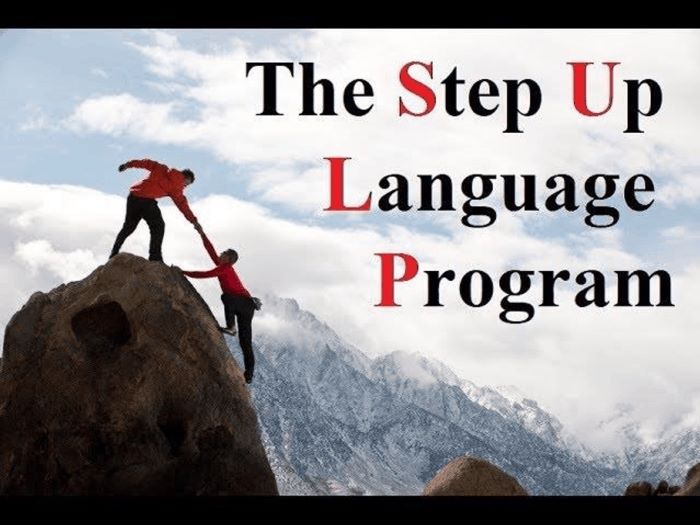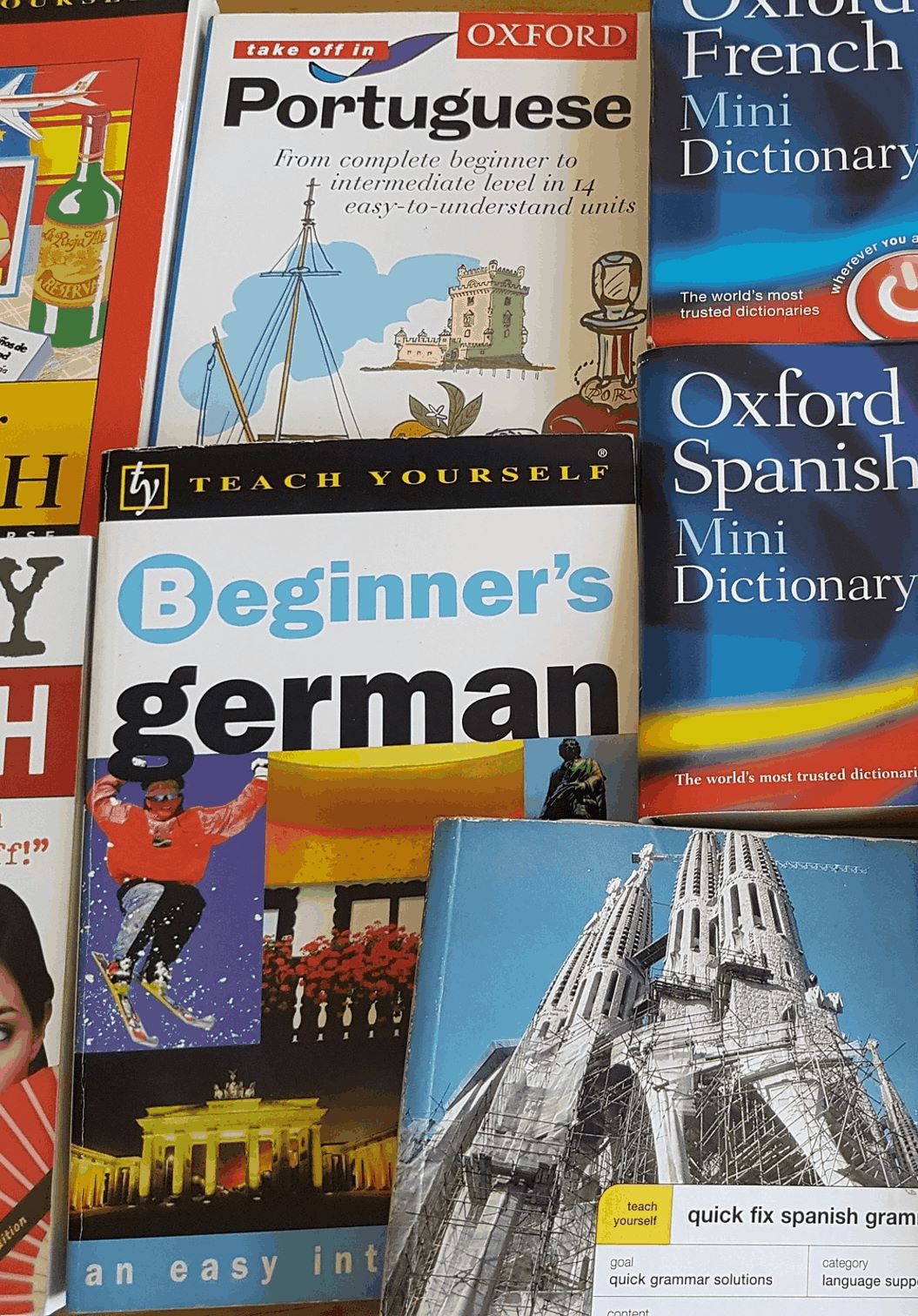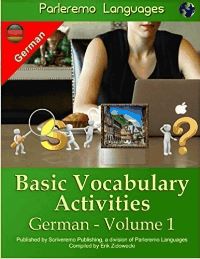Stepping Up Your Language
|
If you are reading this magazine you share the same passion that thousands of people around the globe have for languages. Be it the sounds, the script, or even the history or religion behind the languages, there is something special about them that captivate large masses in all social and economical levels. The study of languages is an activity that has proven to be both intellectually, socially, and emotionally beneficial for the students, in some cases even medically. According to some psychological studies done in language learning communities, people who study languages decrease significantly the risk of old-age mental problems like Alzheimer's and dementia. And with the advancement of technology this once slow and daunting task has become much faster and enjoyable; with games, videos, and other applications right there at the edge of our fingers.  In this battle for the best and most effective way to learn, thousands of methods and approaches have been created, tried, accepted or put to trial, but none of them seem to fix everyone's problems all at once. Nor do any seem to satisfy the majority of the students, who most of the time find themselves relying on several tools at the same time in order to get closer to their study goals. It is common to hear that an application is good, but is missing something, basically because human beings are different! There are no such things as "one-size-fits-all" programs. This is a faulty marketing ruse to attract those with less experience. Some of the most effective ways to learn a language have been found in language learning communities and the newest language learning boom: the "challenges". They vary from a couple days to several months and may involve innumerous languages at the same time, but them you ask: "But what methods make them so effective?" And the answer is both none and ALL of them! The methods and tools are just as varied as the members of these communities. What makes the difference is the aggregation, in other words, the fact that they are doing it together makes the result surprisingly better than the traditional. They share ideas, tools, failures, successes and even their own findings. The interaction in all levels of the learning process creates this matrix of knowledge and experience that benefits both young and old, amateur and experienced alike.  Some of these communities became a monetary institution of sorts, thus shifting the focus from 'learning' to 'earning', while offering very little to those eager to learn and excited about the prospect of success with rewards. The thought of a "free-for-all" language learning community was what empowered the idea of the creation of the Step Up Language Program (SULP). A place where people could learn, share, teach, and above all, ENJOY language learning FOR FREE. The idea behind SULP is neither new nor magical, it is based on the experiences of thousands of people who have studied languages and time and time again point to these very same basic steps: 1 – Set SMART goals; 2 – Get a partner or partners; 3 – Have an accountability system or group; 4 – Be consistent; and last, but not least, 5 – Speak, Speak, Speak. What are SMART goals? These are Specific, Measurable, Attainable, Realistic, and Time-bound goals. Goals that follow this "guideline" are better planed and tend to have a higher rate of success. To just say that you want to "master the Chinese language" isn't a coherent goal for many reasons like, What does it mean to master a language? How long is that going to take? What do you expect to do with it? Do you think you would be speaking like Confucius in a couple weeks? Probably not. But, if you set a goal as "I want to be able to introduce myself, to include family, education, occupation, and hobbies, and understand the same type of introduction by studying Chinese five days a week for one hour a day for three months." you are more likely to be able to fit your study sessions in your schedule and get the best out of it. As you can see, the detailed goal is very SPECIFIC and ATTAINABLE, the amount of work is MEASURABLE and REALISTICally TIMEd, it is the perfect recipe for success. Why do I need a partner (or partners)?  Remember, you want to learn a LANGUAGE, a means for communication, for such you can't just talk to yourself, that is called CRAZY! Although there are some people who prefer to study by themselves, there is very (if any) point in learning a language without the end-goal of speaking to someone. We need to develop speed and fluency in using the vocabulary, grammar, and mimicking native sounds as much as possible, and for this it is essential to have someone to prompt, listen, and question us on every skill. Not to mention the incredible motivational factor that a partner brings. If you are losing your motivation your partner can easily help you get back up, and vice-versa! The magical word 'accountability' Accountability may come to some people as yet another pressure mechanism in an uber control-freak world, but in reality it is a tool to keep us moving forward despite difficulties and doubts. It may be accountability to yourself through a "to-do list" or a week check up by a friend or family member… independent of the source or mechanism you use, it will insure that the pace is being kept and the goals in line to be accomplished. It also takes an extra dose of humility due to the fact that we have to humble ourselves before the inquiring approaches of those who are part of our accountability group, but I guess all of us could benefit from being a little more humble, don't you think? Consistency – that's how water smites the rock In Portuguese there is this saying: "Água mole em pedra dura, tanto bate até que fura.", roughly translatable into 'Soft water in hard rock from always hitting it will punch a hole.' This old phrase examples perfectly the idea of consistency. No skill was ever mastered by being used once a month; no poem was memorized by being read a couple times a year! And so it is with languages. No one can learn a language by paging a book every once in a while, but by making it an integral part of daily life. Some people change their hobbies to fit the target languages, some others even move to the country where that language is spoken in order to increase exposure. Whatever it may be that you decide to do to ensure a consistent language input will surely pay high dividends in the future, which may even be sooner than you previously thought. Let the parrot loose  It is not surprising that the parrot, not just the magazine, but also the bird itself, is connected to the process of language learning. This amazing animal has the ability to reproduce human sounds, which is extremely unique in the animal kingdom. But this doesn't come cheap, it takes hours and hours of exposure to the sound source and many failed attempts until the produced sound matches the pitch and rhythm of the source, thus being understood. Language learners are not different; we have to repeat not only sound patterns, but also grammatical patterns in order to master each individual element of the language in our endeavor to achieve near-native fluency levels. When I was a Portuguese Language Instructor, my supervisor used to tell my students that it is necessary to commit ten thousand mistakes in a foreign language before we could speak it properly, so we might as well make as many mistakes as we can! And fast! There is an intriguing level of truth in this humorous advice... Mistakes cannot be corrected until they are spotted, either by the speaker or by the listener, thus it is crucial to try all combinations of words and patterns in a new language in order to find the mistakes and eliminate them. This exercise does sounds like a young parrot trying to reproduce human speech, except that we can understand the rational explanations and make corrections in a much faster pace, so SPEAK! These steps are important, but they are NOT the "end all be all" of the program. Self-lead research and study time is still necessary and advised, but with many like-minded people in one place the support and care are much stronger. I do believe this community has the potential to serve people on a global scale, helping them not only to achieve their goals, but also help others do the same. Another version of SULP with prizes and extra support will start as soon as people regain the trust lost in negative experiences with other groups and realize that they still have an option to strengthen their language learning process and be rewarded for their efforts. To speak a foreign language is like to acquire a second version of ourselves; a more intelligent, understanding, culturally aware, and communicative version. Strive to learn what you love in a way that brings you pleasure during the process. Don't give up when facing difficult, you can easily find someone who has gone through the same problem before, and most likely knows the way out. The online polyglot community is full of people willing to help you achieve your goals, just reach out and you won't regret! Jeff has studied and taught several languages over the last 19 years as well as worked as a language school educational director and trilingual translator for BYU TV while studying linguistics at Brigham Young University. He participated in a number of language challenges before launching the Step Up Language Program. He may be reached at thelanguagemosaic@gmail.com |
| Stepping Up Your Language | ||||
| Writer: | Jefferson Netto | |||
| Images: | ||||
| ||||
All images are Copyright - CC BY-SA (Creative Commons Share Alike) by their respective owners, except for Petey, which is Public Domain (PD) or unless otherwise noted.
comments powered by Disqus





















